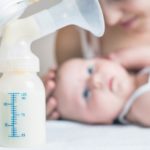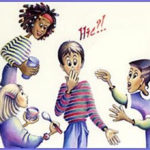Can Newborns Drink Water?
According to research conducted by pediatricians, it is not recommended to give water to newborns under 6 months old who are breastfed. Breast milk already contains a sufficient amount of water, providing adequate nutrition for the baby.
However, for formula-fed newborns, it is advisable to give them some water to assist in waste elimination. Formula milk has higher salt content and can cause slower development in babies compared to breast milk, making them have a higher need for water.
It is recommended to give a small amount of boiled and cooled water to a baby who has a fever or constipation, but it is important to consult a specialist doctor’s opinion.
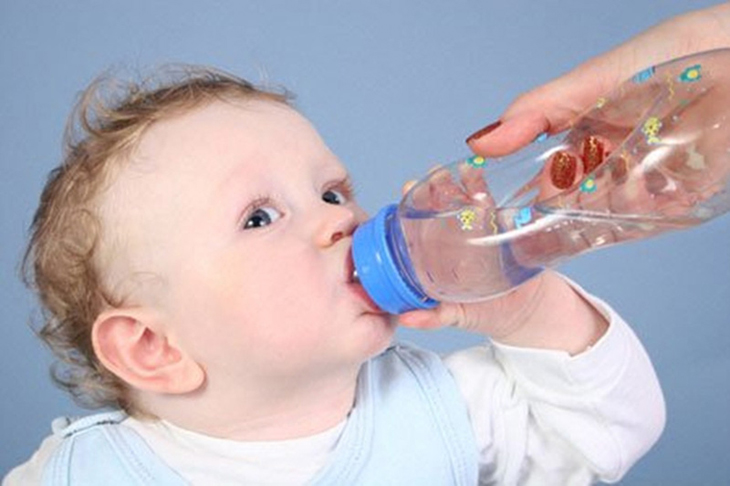
Why Shouldn’t Newborns Drink Water before 6 Months Old?
Many breastfeeding mothers wonder whether they should give water to newborns under 6 months old. The answer is no. During this stage, breast milk or formula milk provides both food and drink for the baby. The baby receives a sufficient amount of water from these sources, even in hot weather conditions.
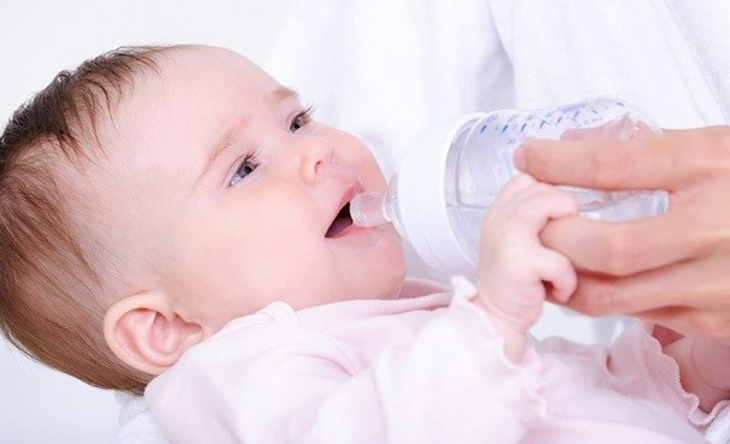
Furthermore, giving infants under 6 months old too much water can impair the absorption of nutrients in breast milk, and in some cases, it can lead to a condition known as water poisoning. Water poisoning can cause seizures and even coma as it dilutes the concentration of sodium in the body, leading to an imbalance of electrolytes.
Once the baby turns one year old and begins consuming solid food and pure milk, a small amount of water can be introduced.
Some Hidden Risks of Giving Water to Infants under 6 Months Old
Drinking Too Much Purified Water Can Hinder Growth and Lead to Malnutrition
Since breast milk already contains over 80% water, it provides the necessary fluids for the baby, and there is no need to supplement water. Giving infants under 6 months old excessive water can hinder the absorption of nutrients in breast milk, resulting in slower growth.
Additionally, the size of the infant’s stomach is small, so drinking water can fill the stomach and make the baby feel full, leading to reduced breastfeeding and milk absorption.
For formula-fed babies, a small sip of water can be given after feeding, but the amount should not exceed 30ml per day.
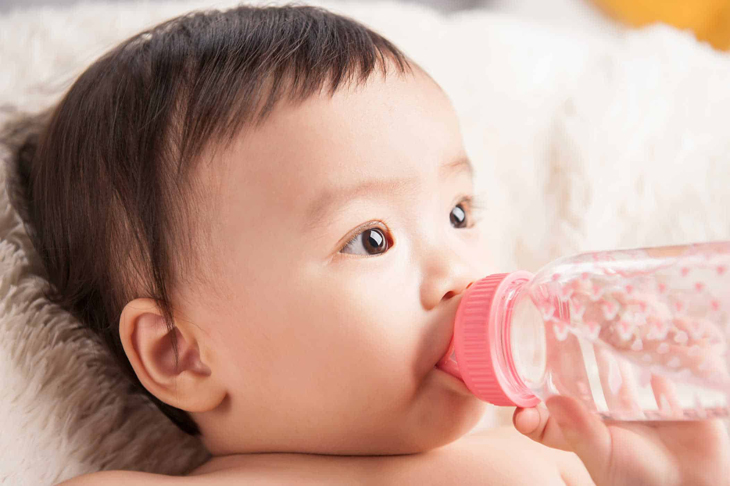
Prone to Water Intoxication
Excessive water consumption can dilute the concentration of sodium in the body, leading to sodium deficiency and affecting the brain’s function. Irritability, sleepiness, and changes in mental state can be signs of water intoxication in infants. It is important to seek medical attention if water intoxication is suspected or if the baby experiences seizures.
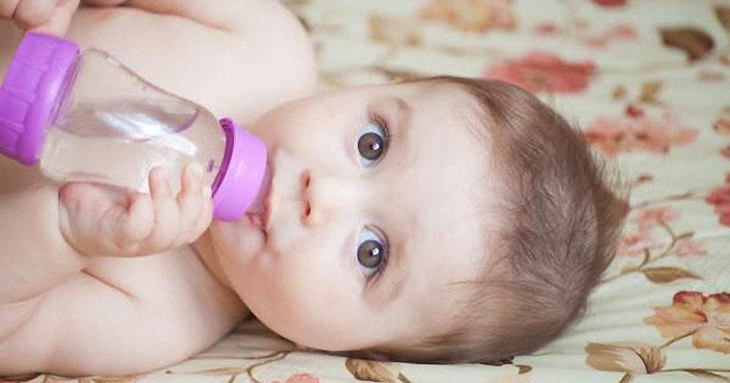
Prone to Diarrhea
Water can be a source of infection for infants if the water source is not safe and clean. Newborns have a higher risk of developing diarrhea due to poor hygiene and their weak immune system. The water absorbed through breast milk is clean and sufficient, and babies who drink water have a higher risk of diarrhea compared to exclusively breastfed babies.
To ensure the safety of the baby, mothers should avoid giving tap water to infants under 6 months old as a daily drink. Diluted formula or electrolyte solutions should also be avoided.
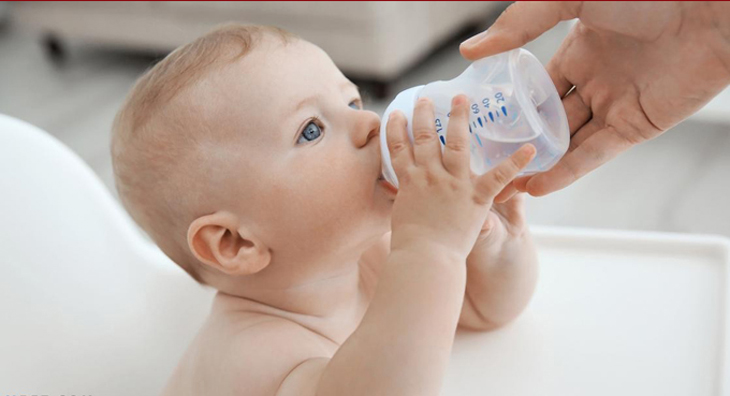
When Can You Give Babies Additional Water?
In certain cases, a small amount of water can be given to infants to treat constipation or in excessively hot weather. Each time, the baby should only be given about 28 – 56ml of water.
After 6 months old, additional plain water can be given to the baby, but the recommended amount should not exceed 59 – 118ml per day. After 12 months, a mixture of low-sugar drinks can be included in the baby’s diet along with water containing fresh fruit.
It is recommended to wait until the baby starts eating solid food before providing a small amount of boiled and cooled water, which should not replace breast milk.
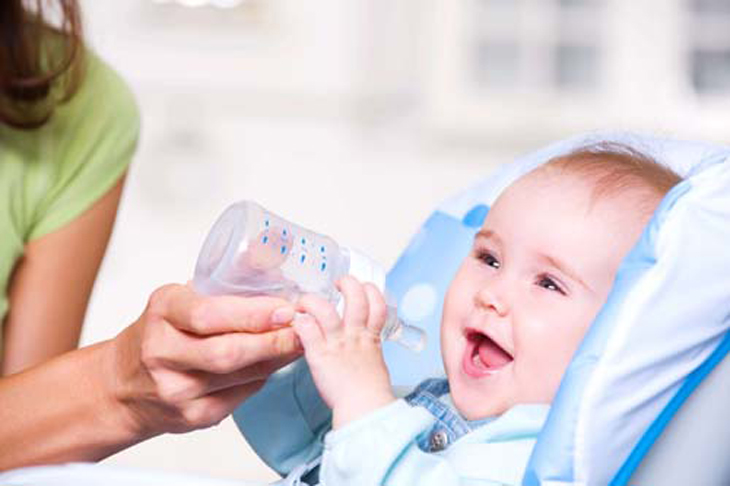
What to Do if the Baby Is Dehydrated or Has a Fever?
In cases of dehydration, doctors may recommend giving the baby electrolyte solutions such as Pedialyte or Infalyte to prevent further dehydration.
If a baby has a fever and is under 6 months old and breastfed, additional breast milk may be necessary. If the baby is under 6 months old and formula-fed, smaller and more frequent amounts of formula can be given. Water should not be provided unless advised by a doctor.
If the baby is over 6 months old, breastfeeding or bottle-feeding should be continued, and water can be provided in between meals.
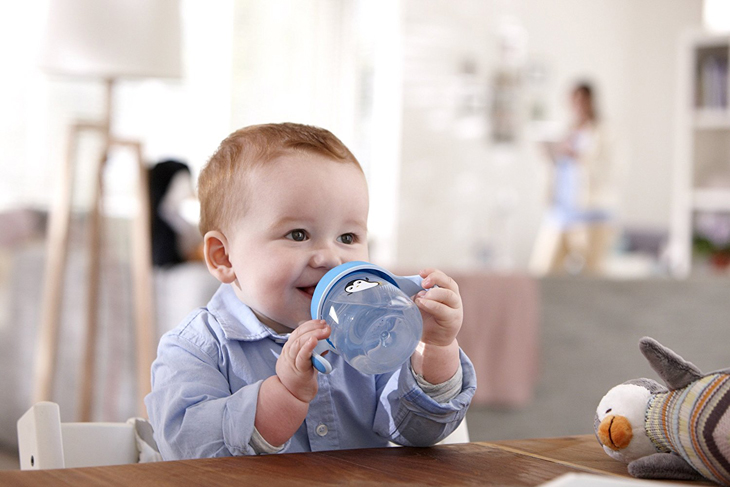
(Source: hellobacsi.com)
Above is the article “Can newborns drink water? Why doesn’t a newborn need to drink water before 6 months old?” We hope that the information provided will help you take better care of your baby’s health!
Strategies for Refrigerating Breast Milk and Its Advantages for Nursing Moms
 Breast Milk and Its Advantages for Nursing Moms’>
Breast Milk and Its Advantages for Nursing Moms’>Are you a new mom feeling overwhelmed with questions about feeding your baby with breast milk? Do you need advice on how to store it properly in the refrigerator? You’ve come to the right place! Read on to learn about the fantastic advantages of mother’s milk and how to store it correctly.

























